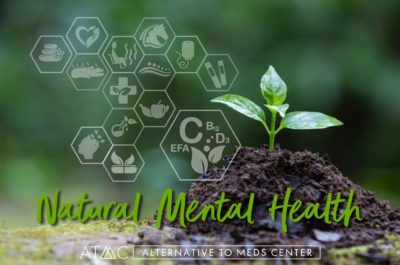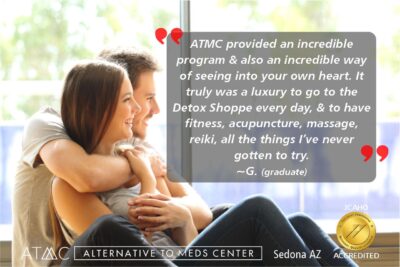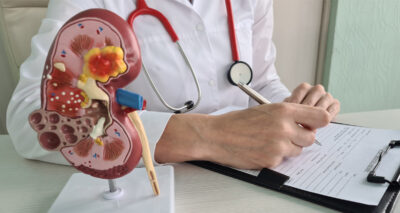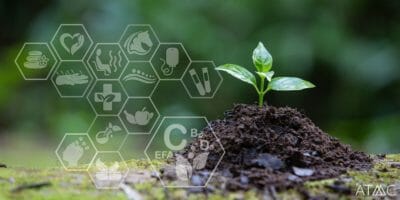Medically Reviewed by Dr Samuel Lee MD
Table of Contents:
Co-Occurring Disorders
Many individuals who suffer from mental health problems, such as anxiety or depression, also struggle with co-occurring medication dependence or drug and alcohol addiction. This is referred to as a co-occurring disorder or dual diagnosis and is much more prevalent than one may think.1
Our team is experienced and fully able to treat dually diagnosed clients.
Dual Diagnosis Is a Growing Problem
A federal study recently revealed that a significant percentage of drug or alcohol users also have mental health conditions or diagnoses, and vice versa. 2,3,9
Facing the dual challenges of treating mental health problems and successfully recovering from addiction requires specialized and qualified help. Clients need expert coordination of mental health treatment with education and recovery for drug or alcohol, and prescription medication dependence or addiction. This is why we created our dual diagnosis treatment program.
Alternative to Meds Center’s program is staffed by medical professionals and licensed counselors including many individuals who have overcome addiction and mental health problems themselves.
What is Self-Medication?
One of the important aspects of addressing dual-diagnosis addiction is educating clients about self-medication. In the education components, we cover:
- Underlying causes of the mental health symptoms that led to self-medicating and
- The mechanisms that feed addiction, such as denial and guilt.
We educate our dual-diagnosis program residents about the conditions they are struggling with and how to successfully manage them with many strategies and coping skills.
Clients receive peer support, encouragement from staff, and ongoing inspiration to choose healthy behaviors and productive lifestyle changes that can help overcome addiction or medication use.
Since self-esteem issues are commonly part of the underlying mental health and addiction problems, Alternative to Meds Center makes it a priority to provide positive feedback. We hold weekly graduations to congratulate participants on their huge accomplishments.
Components of the Dual-Diagnosis Program
While each client receives a treatment approach that is entirely customized to their individual needs and situation, some aspects of our program are provided to all clients.
All clients receive individual counseling, peer support, and group therapy.
Individual counseling helps clients work through their fears and psychological aspects of addiction, while group therapy and peer support allow clients to bounce ideas off of their peers, help peers through the recovery process, and receive help from peers.
While our program is an alternative to the 12-step model, we do offer the option of transportation to 12-step programs such as AA or NA and staff members who can guide clients through that process.
Customized Treatment Plans
Each client receives customized treatment that will uniquely address their needs.
Upon admission, each resident receives lab testing and medical assessments to ensure that their physical needs are met. This may mean medication tapering and withdrawal methods, body detoxification techniques, and other protocols that make the process of getting off medication, drugs, or alcohol comfortable and smooth.
 The atmosphere of our dual diagnosis addiction treatment center is more like a spa than a rehab facility and offers our residents the luxurious comforts of home.
The atmosphere of our dual diagnosis addiction treatment center is more like a spa than a rehab facility and offers our residents the luxurious comforts of home.
Our goal is to help the dually diagnosed become free of self-medication and addiction as well as effectively address the mental health issues that led to addiction/self-medication. At Alternative to Meds Center, we realize the increasing need for dual-diagnosis addiction treatment and provide specialized, custom treatment plans for the dually diagnosed.
While this process does require medical supervision and direction and the help of licensed therapists, we also provide a diverse variety of therapeutic approaches to help the body and mind move through the recovery process as smoothly and comfortably as possible. Therapies that we offer include therapeutic massage, acupuncture, yoga, hiking and other exercises, Qigong, art therapy, Equine therapy, chelation, holistic detox, CBT, and other genres of counseling, and much more.
Diverse Treatment Methods Allow for Real Recovery
Dual-diagnosis treatment programs may include:
- Lab testing
- CBT individual counseling, group counseling 7,8
- Peer support programs
- Orthomolecular medicine (correction of diet, supplementation, IV therapy, nebulized glutathione, and more) 4,5,13
- Environmental medicine (addresses neurotoxicity issues) 12
- Medication tapering
- Holistic detox
- Holistic pain management
- Exercise, yoga, Qigong 6,10,11
- Adjunctive therapies
The term co-occurring disorders, also known as dual diagnosis, is used when a person is suffering from both substance abuse (drugs, alcohol) and also from a condition of mental distress like depression, schizophrenia, or physical dysfunction, like pain.
Often, drugs or alcohol are used to mask or self-medicate symptoms of mental or physical distress. It is also often the case that drug and alcohol abuse causes symptoms of mental and physical distress. So it can be easy to overlook an important segment of the healing process if one focuses on just one side of the multi-faceted problem.
Alternative to Meds Center provides a wide range of treatment strategies to overcome dual diagnosis-related symptoms and conditions. Often the symptoms of SUD coincide with psychiatric symptoms, and vice versa. A thoughtfully laid-out program can address all sides of such a compounded problem.
Lab testing is essential for many reasons. A snapshot of one’s nutritional deficits, hormones, toxic accumulations, and even genetic markers can provide clear direction on the path to recovery.
Counseling services are diverse and thus can be programmed for individual needs.
Peer support groups are popular for their compassion and fellowship.
Medication tapering is done under the supervision of medical doctors and trained caregivers for a compassionate and well-planned set of protocols for success.
Diet and supplementation are key to many facets of recovery and are delivered under the umbrella of orthomolecular principles. Correction of the diet along with supplementation to balance out deficiencies is vital for recovery.
Cleansing of neurotoxicity is also a key component that has shown extraordinary efficacy in relieving symptoms in gentle and natural ways.
Holistic pain management is essential where pain medication or other SUD requires addressing pain without relying solely on medication for relief.
There are many aspects to treatment plans at Alternative to Meds. You can view individual program components on our services overview pages for greater details on each of these.
Mental illness and addiction occurring at the same time can be one of the most difficult situations to live with.
A workman who injures himself on the job may begin taking painkillers for relief. His injury may be slow to heal or lead to chronic pain, so he continues taking the pain pills and soon finds that if he misses a dose; he becomes sick, irritable, and depressed.
Now he has a co-occurring disorder of physical pain and mental distress, and because he is dependent on the medication, he begins stealing to procure more medication. One helps a person out of this morass of symptoms best by addressing each of the various factors of the problem.

We specialize in addiction and mental health and know how to provide the necessary container to address both problems simultaneously.
At Alternative to Meds Center, various protocols are used to alleviate each aspect of the situation so that health and wellness are possible to attain. If you are suffering from a dual diagnosis or co-occurring disorder situation, you likely require a specialized program where the center can specifically focus on all the various aspects of it. We can help find the right treatment.
At Alternative to Meds Center, co-occurring disorders treatments are individualized to meet the exact needs of the dually diagnosed so the program can be customized with services that match those individual needs. In this way, an individual can bridge over to a life of true independence. The many families that have used our services successfully form a wide net of support and are more than happy to share their experiences with interested families.
 The atmosphere of our dual diagnosis addiction treatment center is more like a spa than a rehab facility and offers our residents the luxurious comforts of home.
The atmosphere of our dual diagnosis addiction treatment center is more like a spa than a rehab facility and offers our residents the luxurious comforts of home.








